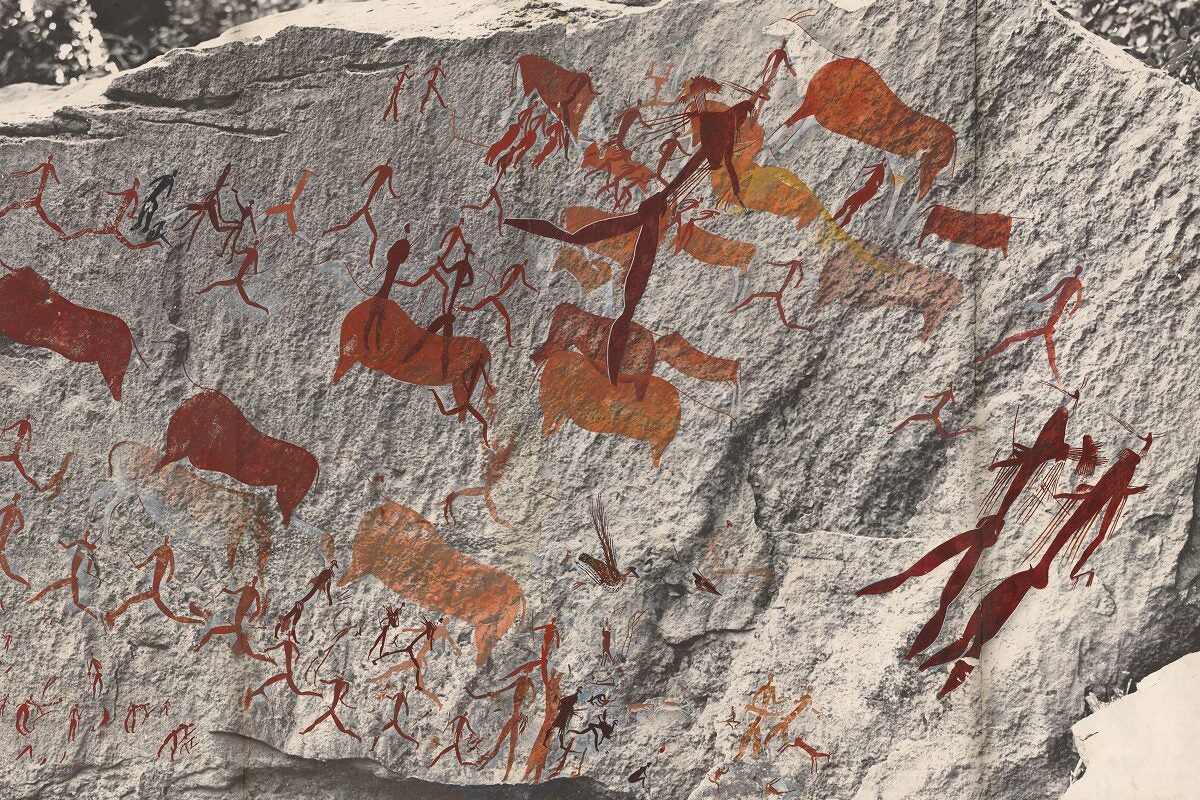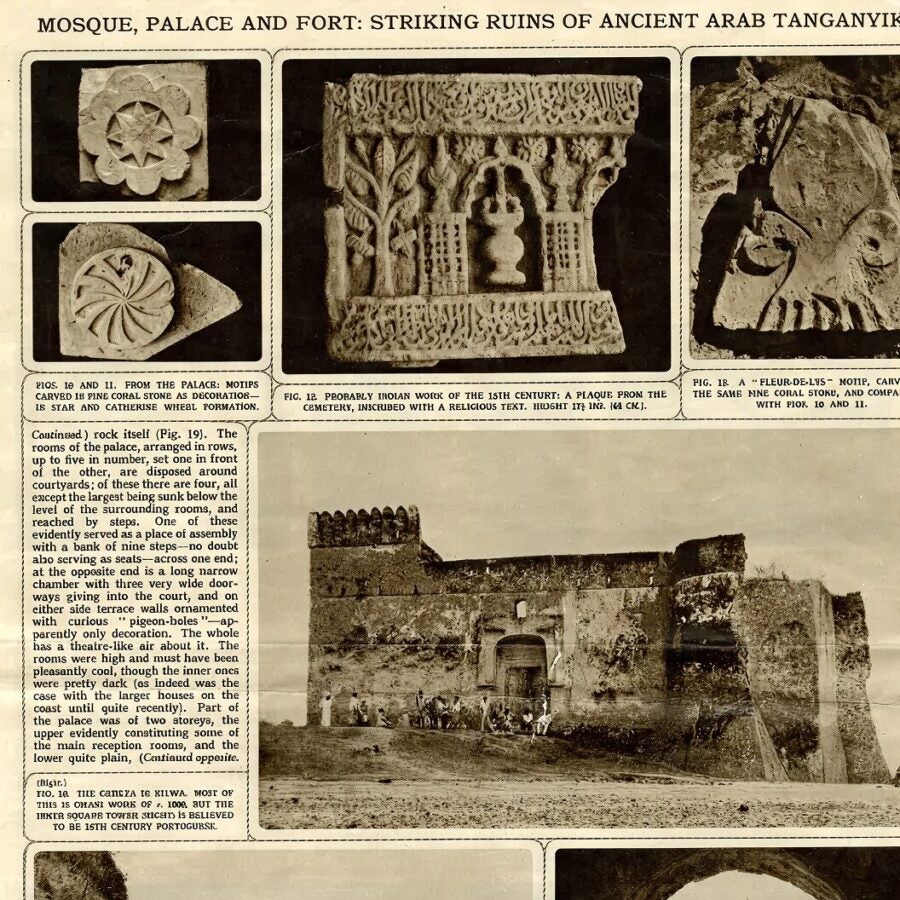Preserving Africa’s cultural and archaeological legacy
World Heritage Sites: Africa is a comprehensive digital collection of more than 86,000 objects documenting Africa’s cultural heritage and rock art sites. Through visual, contextual, and spatial data, this resource supports research and preservation efforts across disciplines including anthropology, archaeology, art history, architecture, and geography.

About Struggles for Freedom: Southern Africa
Developed in collaboration with scholars and institutions across Africa, Europe, and North America—with generous support from the Mellon Foundation and the Arcadia Fund—World Heritage Sites: Africa offers unparalleled documentation of the continent’s heritage. The collection encompasses 30 sub-collections featuring visual, contextual, and spatial records that capture the richness and diversity of African history.
The collection’s spatial documentation draws on advanced surveying and imaging technologies such as laser scanning, photogrammetry, GPS, and satellite remote sensing. These methods have produced detailed 3D models and ground plans of sites and structures, façade views and panoramic images, and comprehensive GIS data, alongside digital video and stereo imagery.
Spatial documentation was created using advanced surveying and imaging technologies such as laser scanning, photogrammetry, GPS, and satellite remote sensing, producing:
- 3D models and ground plans of sites and structures
- Façade views and panoramic images
- Geographic information systems (GIS) data
- Digital video and stereo, digital, and panorama images
Contextual data includes site-specific scholarly materials such as:
- Site plans, maps, and excavation reports
- Photographs, slides, and field notes
- Manuscripts, books, and archival documents
- Personal journals, travelers’ accounts, and trade logs (17th-19th centuries)
Why it matters
This collection serves as a critical tool for researchers and institutions dedicated to the conservation and management of African cultural heritage. It provides insight into the intersection of culture, environment, and history, helping scholars, museums, and preservation organizations study, protect, and interpret heritage sites across the continent.
Collection highlights
- More than 86,000 objects documenting African heritage and rock art sites
- 30 sub-collections contributed by archives, museums, and research institutions across Africa, Europe, and North America
- Highlighted collections:
- Heinz Rüther Collections, University of Cape Town
- Kilwa Archive, British Institute in Eastern Africa (BIEA)
- Smithsonian Heritage Collection

Global collaboration and partnerships
World Heritage Sites: Africa was developed with the contributions of libraries, museums, and academic institutions across Africa, Europe, and North America, each working to build and sustain an online database of high-quality research on African heritage. Contributing partners include:
- Ghana: Ghana Museums and Monuments Board; Institute of African Studies, University of Ghana; National Commission on Culture
- Italy: Università degli Studi di Napoli “L’Orientale” (UNO)
- Kenya: British Institute in Eastern Africa (BIEA); National Museums of Kenya; Trust for African Rock Art (TARA)
- Mali: Direction Nationale du Patrimoine Culturel (DNPC); Missions Culturelles Djenné and Timbuktu; ONG SAVAMA-DCI
- South Africa: University of Cape Town (Department of Geomatics, Michaelis School of Fine Art); Iziko South African Museum; National Library of South Africa (NLSA); Rock Art Research Institute, University of the Witwatersrand (RARI)
- Tanzania: University of KwaZulu-Natal
- United States: University of Witwatersrand, Historical Papers; Nordic Africa Institute, Nordic Documentation on Liberation of Southern Africa; World Council of Churches Archive and Library; Anti-Apartheid Movement Archives Committee; Bodleian Library of Commonwealth and African Studies at Rhodes House, University of Oxford (BODLIB); London School of Economic; African Activist Archive
- Zimbabwe: National Museums and Monuments of Zimbabwe
Collection background
World Heritage Sites: Africa was originally produced by Aluka, an international initiative to build a digital library of scholarly resources from and about Africa. In 2008, Aluka became part of JSTOR, ensuring the ongoing preservation and accessibility of this invaluable resource.
The name Aluka comes from a Zulu word meaning “to weave,” symbolizing the project’s mission to connect archives, institutions, and scholars worldwide.
Funding for this collection was provided by the Mellon Foundation and the Arcadia Fund.
Get access
Bring World Heritage Sites: Africa to your institution
Open the door to Africa’s past. Access a digital collection of more than 86,000 objects—3D models, maps, manuscripts, and more—documenting the continent’s cultural and archaeological legacy.
Preserve Africa’s past, empower its future
Access more than 86,000 digital objects documenting Africa’s cultural heritage and rock art sites—supporting research, teaching, and preservation across archaeology, anthropology, art history, architecture, geography, and beyond. Fill out the form below to learn how your institution can use this vital resource.
Note: Items marked with * are required.
View image credits from this page

Harold Pager. RARI-HPC-01-115HC. n.d. Part of Harold Pager Collection, World Heritage Sites: Africa.

British Institute in Eastern Africa. “Mosque, Palace and Fort,” August 17, 1963. Part of British Institute in Eastern Africa, Kilwa Archive, World Heritage Sites: Africa.
Get World Heritage Sites: Africa
Preserve Africa’s past, empower its future
Access more than 86,000 digital objects documenting Africa’s cultural heritage and rock art sites—supporting research, teaching, and preservation across archaeology, anthropology, art history, architecture, geography, and beyond. Fill out the form below to learn how your institution can use this vital resource.
Note: Items marked with * are required.